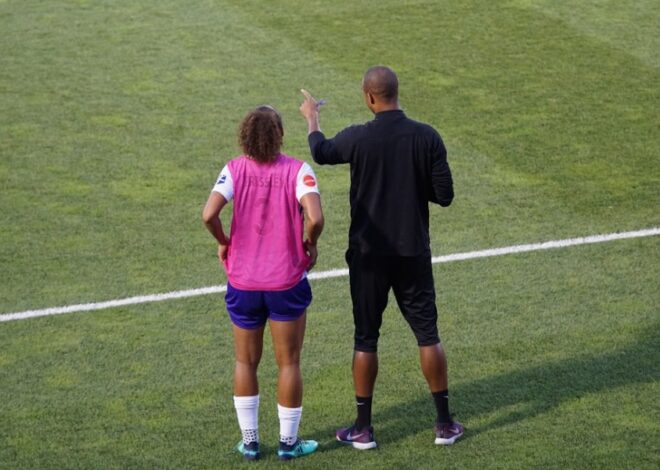My Son’s Parade Experience
My son marched in his first parade this past weekend. The Montrose/Glendale area in California hosts an annual Holiday/Christmas parade in their “old town” section. It is generally a “local” event that features high school bands, local community service groups, and even a politician or two. Santa flies over the parade in a helicopter (Santa’s a big hit!).
My child was invited to attend as part of his soccer team. He does not play, however, on a team one would consider typical. His team is called a VIP team. The VIP stands for “Very Important Players” and consists only of kids with special needs. They practice and play games on a very limited competitive basis. There is very little stress or pressure on the kids and there are “helpers” (kids from the high school) at practice and games. All the kids are allowed to dribble to the goal and shoot (with a clumsy adult player “missing” the shot). They score often.
This team is a good fit for my soccer-challenged son. He does have a bit of athletic ability, when he’s able to concentrate and focus. Yet, his level of concentration is unpredictable, and he’d rather spend his free time in front of his computer. Sports are definitely a challenge.
During the parade, per my request, the coach allowed me to walk with my son. I knew this would make my son feel more at ease, knowing Mommy was walking with him. Other parents also walked with their kids.
While marching, I began to think about how/why my child was able to march in this parade while the majority of his teammates didn’t show up.
First, I considered the typical reasons for the no shows: had something else to do that night, child didn’t feel well, Grandma’s in town. Then, I began to consider other autism-related reasons.
For example, it was darn cold that night. For me, this is a bit of an issue. My son, however, doesn’t mind the cold nearly as much as I do. What if you have a cold-sensitive child?
What was the hardest part of marching for my child?
The waiting. Participants were expected to arrive one hour before the start of the parade and wait with their group until the parade started. My son does not like to wait. He admits this freely. He constantly asked me, “When is the parade going to start, Mommy?” Then, when the parade didn’t start on time, I heard about that as well!
Isn’t a parade a challenge for a child with autism?
You bet. There are crowds. Children with autism often don’t like crowds. There were hundreds of people watching this parade and hundreds more who participated. It was noisy. People were cheering and there were loud horn noises from vehicles like fire trucks and police cars. Noise and crowds are definite problems for our kids.
Even the walking was a challenge.
Our group got a little behind at one point. One of the parade representatives had to ask our group to “step up the pace.” As a result, we had to encourage our kids to walk quicker, no easy task.
Finally, as I was strolling with my son, encouraging him to wave and say, “Happy Holidays,” I had one more thought about special needs children participating in this event. I asked myself what could be yet another reason for the no-shows?
Granted, I am a bit wary of admitting reason, except for the fact that this type of decision does exist within our community.
What is the reason? Shame or embarrassment.
There may have been a parent or two that did not feel like “parading” around their special needs child in front of hundreds of people. This is their choice, of course. But, I did think about it.
What would be the reason for this?
Our kids are often awkward-looking. They say things that many people may consider “weird.” They hand gesture or arm wave. Many kids have trouble with facial expressions which makes them often look like they’re frowning. They may even look like they can’t walk in a straight line!
Were some of those no-shows because of parents who felt shame or embarrassment to openly expose their children to this sort of “attention.” I hope not, but I fear that it may be true.
For our family, it was not a problem. My child is a member of this VIP soccer program and I am proud of that. I am proud to show support for the program by allowing him to participate in a parade as a member of his team. He wanted to march and was very excited by the opportunity. Once we got marching, he waved and participated appropriately. He looked like he belonged and felt good about what he was doing.
And, that kind of response is never a bad thing. Our child belongs to an organization of caring people. He participates as best he can and succeeds often. And we are proud of him.
Now, ask yourself some questions: Can your child march in a parade? Can your child march to represent a special needs-related organization? And, how would you feel if your child did attend? How would you feel marching with your child in front of hundreds of people?
For us, it was an easy decision. This experience was fun and exciting and a terrific opportunity for my child. We have never shied away from attempting experiences regarding to our son… because… why not? He deserves to march in a parade just like anyone.
Then, our son can turn around and say, “Hey, that’s the street I marched down,” just like he did the very next day as were driving down old town Montrose. That kind of reaction makes the experience worth it for us. That’s what it’s all about! Seeing exactly how an experience like a parade can make a special needs child feel like he’s home.




